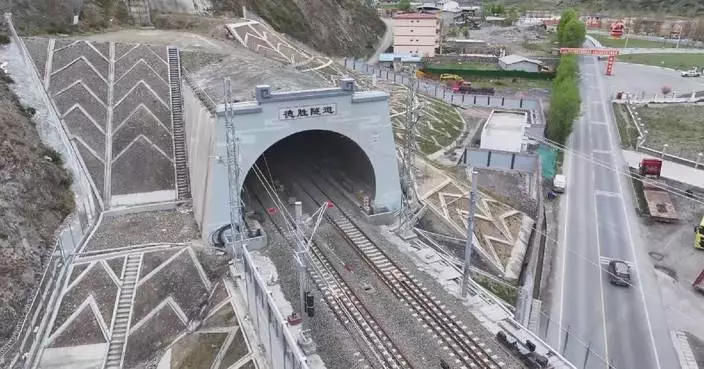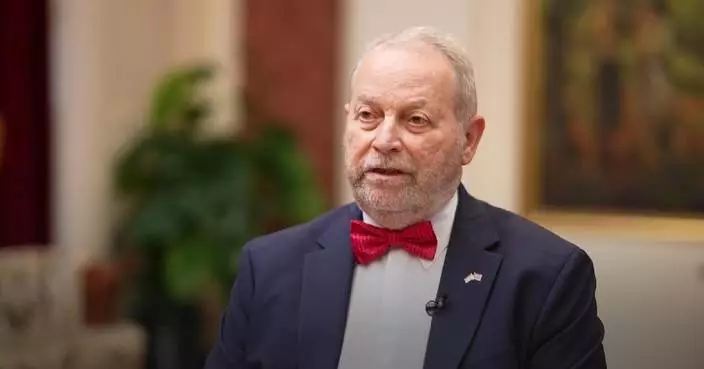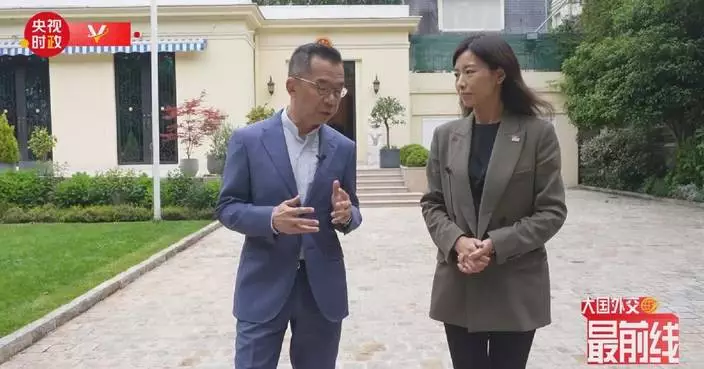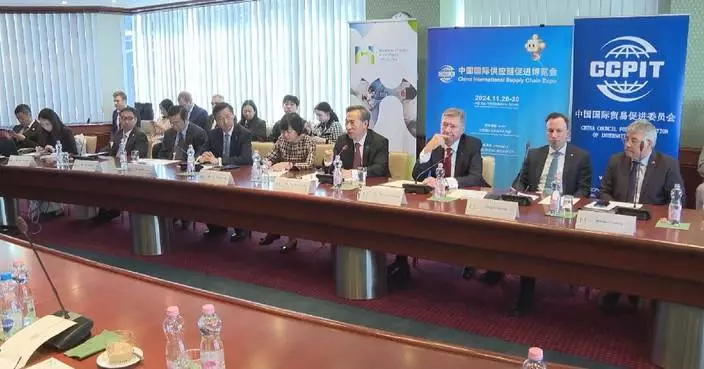China's rise in advanced technologies and artificial intelligence (AI) is challenging the United States, necessitating a paradigm shift towards collaboration and reciprocity in the AI landscape for sustainable progress, said Thorsten Jelinek, director of the Taihe Institute European Center.
Speaking in an interview with China Global Television Network (CGTN) recorded on April 8 and released on Saturday, the Berlin-based scholar argued against viewing AI collaboration as a zero-sum game, underscoring the need for a paradigm shift in how superpowers interact within the realm of technology.
"The short answer is no. But innovation is the only area which has no diminishing returns. You can utilize all your natural resources, but there's a limit. You can increase efficiency, reduce costs, but there's a limit. But with innovation, it's the only way you can grow, and here, China for the first time a country is really challenging the United States, and I think that's a big issue for the U.S. growth model. So, it's not so easy also for the United States to say, 'Okay, okay, we will back off, and we will become friends.' No. It must be clearly understood that this is not an easy game. So, for each of the areas of tension, both superpowers and the EU, should come together and find a mechanism of maybe reciprocity, but to find a mechanism of collaboration. I think this is the only way forward," Jelinek said.
Jelinek further elaborated on the dynamics of technological advancement and international relations, suggesting that both countries can benefit from cooperation rather than confrontation.
"You have to consider, with all my admiration and respect, how China broke through, it was the United States building up the post-Second World War platform, right? It has created a lot of wealth, and now we have to see [and] understand how the U.S. cannot just give it up, and China needs to also see how it can improve it, and how both sides can improve it. I think everyone benefits if China is growing healthily and the United States is coming back onto a normal, healthy growth. I think this is what we should aim for," Jelinek added.

Scholar urges AI collaboration, rejects zero-sum game for global tech leadership

Scholar urges AI collaboration, rejects zero-sum game for global tech leadership
Secretary General of the International Federation of Red Cross and Red Crescent Societies (IFRC) Jagan Chapagain emphasized the critical urgency of tackling the climate crisis, which stands as one of the most fundamental challenges facing our world today, as he cited unprecedented weather patterns that have had an impact on human life and resources.
His remarks came during a Wednesday interview with China Global Television Network (CGTN), coinciding with high-level talks in Washington between China and the U.S. on addressing the climate crisis, scheduled from May 7 to 16.
Chapagain stressed the need for innovative fundraising mechanisms, as he highlighted lack of funding as the most critical challenge in combating climate change.
"I mean the climate crisis, if we talk about it, it's one of the fundamental crisis the world is facing today. If we just look back the last 12 months, look at the weather pattern anywhere in the world, it doesn't resemble to anything we experienced. And it's creating a multiple impact on human life; climate and health, climate and food security, climate and water-its impact there, climate and energy. So these are multiple issues that are impacting the people living in vulnerable settings. So at the moment, being humanitarian, it is not an easy time for the humanitarians. Now, the challenge is how do we get those negotiations and turn them into action on the ground where people are actually living. And there, I think the action part is still lagging behind. The second aspect which is also lagging behind is funding, because whenever you have any decision or resolution to operationalize that, it requires funding. And this has been one of the big asks from my organization; how do we get the funding channel to the communities and the countries which need it the most? I was recently in Malawi, and I had a chance to talk to the climate minister there. And one of his main concerns was the climate funding is not sufficiently reaching the communities who need it the most. They are trying their best, but the posting is the amount available is not enough," he said.
Climate action is a key focus for Chapagain's visit to China, as he believes that collaboration with countries such as China is crucial in tackling the climate crisis.
"The second thing is even when it is available, the flow of funding is not reaching the local community level, and this is one of our major asks. Globally, it has been to channel the right level of resources reaching the people at the community. And this is one of the things during my trip here in also China. I have been discussing because China has played a significant role in COP negotiations, but also in making a huge transition, particularly on the energy transition and investing at the community level. And I believe that the partnership with countries like China is extremely important if we are to turn the tide of the climate crisis," he said.

IFRC chief urges immediate action to combat climate crisis











